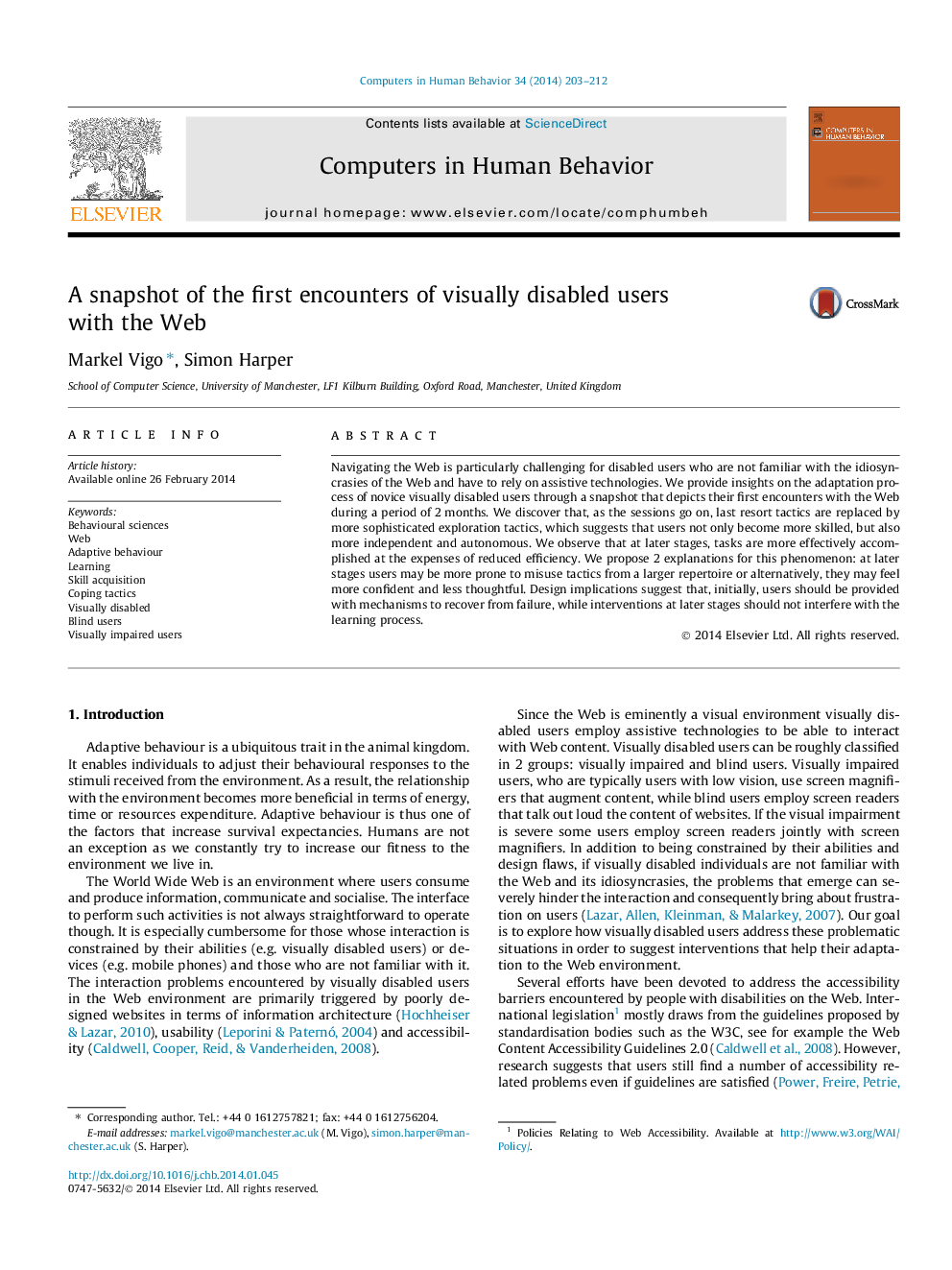| Article ID | Journal | Published Year | Pages | File Type |
|---|---|---|---|---|
| 350584 | Computers in Human Behavior | 2014 | 10 Pages |
Abstract
Navigating the Web is particularly challenging for disabled users who are not familiar with the idiosyncrasies of the Web and have to rely on assistive technologies. We provide insights on the adaptation process of novice visually disabled users through a snapshot that depicts their first encounters with the Web during a period of 2Â months. We discover that, as the sessions go on, last resort tactics are replaced by more sophisticated exploration tactics, which suggests that users not only become more skilled, but also more independent and autonomous. We observe that at later stages, tasks are more effectively accomplished at the expenses of reduced efficiency. We propose 2 explanations for this phenomenon: at later stages users may be more prone to misuse tactics from a larger repertoire or alternatively, they may feel more confident and less thoughtful. Design implications suggest that, initially, users should be provided with mechanisms to recover from failure, while interventions at later stages should not interfere with the learning process.
Related Topics
Physical Sciences and Engineering
Computer Science
Computer Science Applications
Authors
Markel Vigo, Simon Harper,
